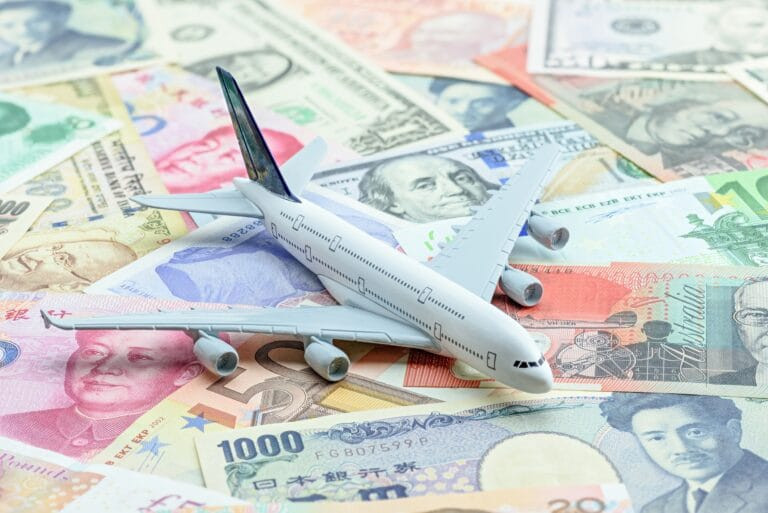The global airline industry is facing a major financial roadblock. According to the International Air Transport Association (IATA), US$1.3 billion in airline revenues is currently blocked by governments around the world, preventing carriers from accessing funds earned through ticket sales, cargo services, and other operations.
While this marks a 25 percent improvement from the US$1.7 billion stuck in October 2024, the issue is far from resolved—and the ripple effects are hitting global trade, particularly air cargo, hard.
Where the Money’s Stuck?
Most of the blocked funds—over 80 percent—are concentrated in just ten countries. Topping the list is Mozambique, holding back $205 million, followed by six Central African nations in the XAF zone with $191 million, Algeria at US$178 million, and Lebanon with US$142 million.
For airlines, this isn’t just a cash flow problem. It’s a threat to their ability to plan, invest, and even continue operations in these regions. IATA is once again calling on governments to honor international treaties—particularly the Chicago Convention, which supports free cross-border trade in aviation.
“Airlines operate on razor-thin margins,” said Willie Walsh, IATA’s Director General. “They need reliable access to revenue to cover expenses like fuel and aircraft leases—mostly paid in U.S. dollars. Blocking funds not only violates agreements, it disrupts global connectivity and jobs.”
Feeling the pinch
While the passenger side of aviation gets the spotlight, air cargo is quietly bearing the brunt of this liquidity crisis. Air cargo moves 35 percent of global trade by value—worth about US$6.8 trillion annually—and many of the countries holding back funds are crucial export and transit hubs.
For cargo carriers, the problem is even more acute. They earn in local currency but pay most of their expenses—fuel, insurance, maintenance—in dollars. If they can’t get their money out, they pull back. That means fewer flights, less investment in cargo terminals, and delays in upgrading infrastructure, especially in places like Africa, South Asia, and the Middle East, where air freight is vital to moving perishables, medicines, and industrial goods.
Legal gray areas, real-world costs
Blocking airline revenues isn’t just bad economics—it may also be a legal breach. Many bilateral and multilateral air service agreements prohibit such restrictions, and legal experts warn that governments may be violating international trade and investment treaties.
Still, airlines rarely take legal action. The process is slow, expensive, and politically risky. Instead, most engage in behind-the-scenes talks or turn to their national governments for help—often with mixed results.
“The real issue is that there’s no legal mechanism to enforce these obligations quickly,” said one aviation legal expert. “Airlines end up negotiating with no leverage, which undermines the global aviation framework.”
Progress and setbacks
The situation isn’t uniformly bleak. Bangladesh and Pakistan, for instance, have significantly reduced their backlog—from US$196 million and US$311 million to US$92 million and US$83 million, respectively. That shows progress is possible when there’s political will and regulatory coordination.
But Mozambique’s backlog has nearly doubled, and countries like Zimbabwe, Eritrea, and Angola still block tens of millions—despite depending heavily on air connectivity for essential imports.
What Can Be Done?
IATA is pushing for solutions. Some of the ideas on the table:
• Setting up escrow accounts to hold and release airline revenues safely
• Legally classifying airline revenues as repatriable income
• Creating multilateral clearinghouses in partnership with central banks
• Bringing the issue under WTO trade agreements to challenge it as a form of non-tariff trade barrier
At a recent IATA legal symposium, experts warned that these restrictions are essentially capital controls in disguise. And their impact goes beyond aviation—they disrupt entire supply chains.
Trade, investment, and development
When cargo flights pull out of a country, it’s not just packages that are delayed. Small businesses lose access to global markets, exports shrink, and foreign investment dries up. There are over 200 airport infrastructure projects in Africa alone that could be stalled because of the negative signals these restrictions send to investors.
“Governments often say they’re protecting their economies by blocking funds,” noted a trade economist. “But in doing so, they cut off the trade lifelines that could actually help them recover.”
Financial fair play
The problem of blocked airline revenues is now seen as a core challenge to global trade and logistics. And it’s not going away without serious reform. For air cargo operators, supply chain leaders, and policymakers alike, the message is clear: without financial certainty, there can be no global connectivity.
“This isn’t just about airlines getting paid,” said IATA’s Willie Walsh. “It’s about maintaining the flow of goods, supporting jobs, and keeping trade moving—especially in the regions that need it most.”
Freeing up these blocked funds isn’t just a matter of financial housekeeping. It’s a strategic priority for global commerce in an era where resilience, agility, and fairness matter more than ever.




